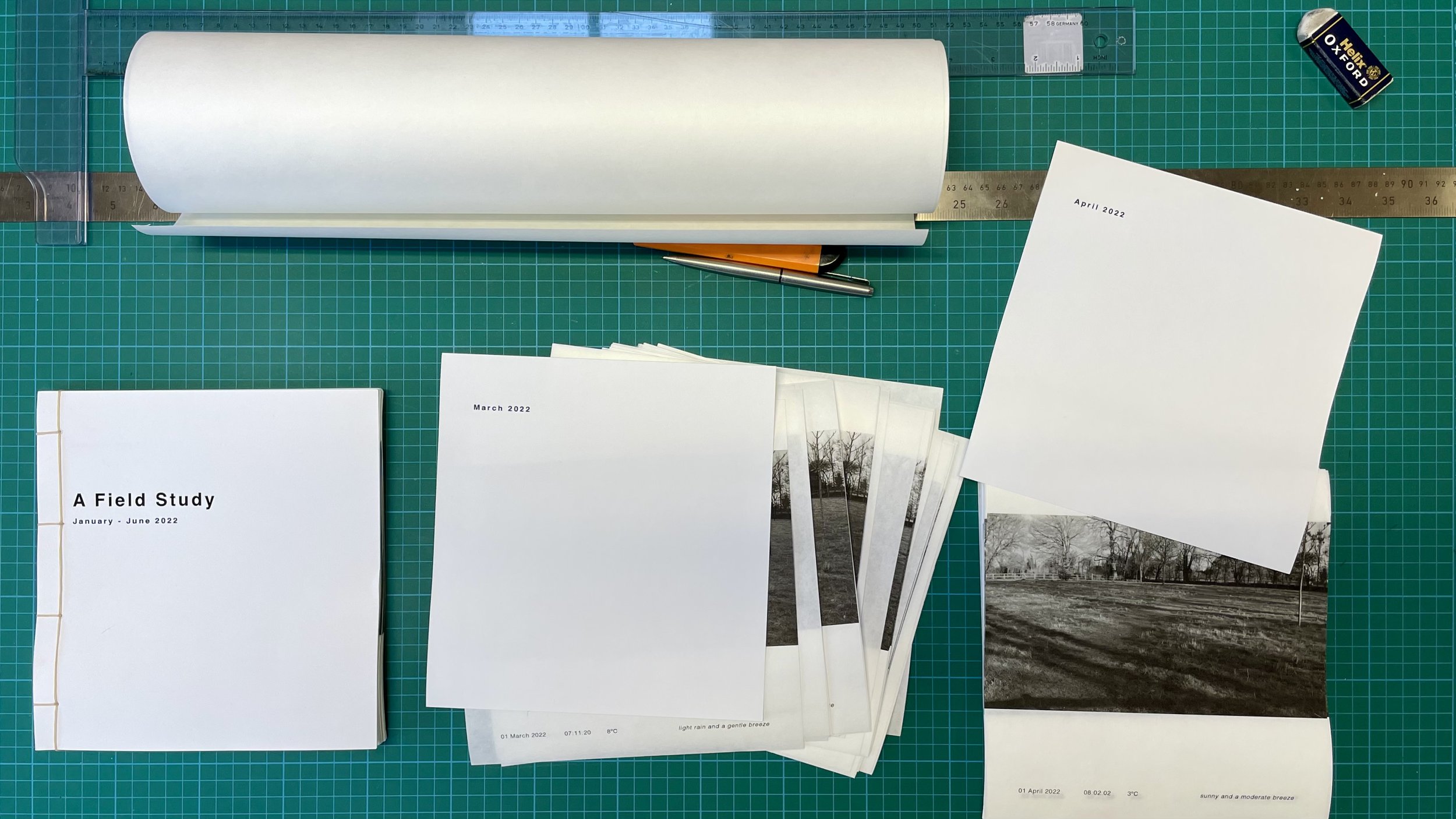REFLECTION: leaving The Field Clear
In the past 2 years, my practice has reflected the observation of one field through physical participation as both a passive observer and a full, active participant. Recording methods such as visual, audio and archival data accumulate to form a collection which subsequently provided material for works such as A Field Study (2022 ongoing). The objective for this blog is to illustrate the dilemma that confronts the observer when participating in forms of observation. It seeks to interpret outcomes arrived at due to the consequences of a lesser or greater interference with its environment.
Tim Ingold suggests the anthropologist is ‘enjoined to observe and describe the forms of life they encounter more or less as they find them’ but that they recognise, ‘by the very fact of their presence, they cannot help but participate in the situations they observe’ (2022, Part 1). Calling it ‘the field’, he upholds ‘most anthropologists are keen to play down the experimental dimensions of their work’. Arguing that daily life consists of experimental activity in order to gain knowledge, he asks, ‘is not experimentation, then, fundamental to anthropological inquiry as it is to the ways of life it seeks to understand?’ (2022, Part 1).
To do the thinking in the open, the investigator is right in the midst of things rather than merely collecting ethnographic data for analysis back in the laboratory or in my case the studio. The work, A Field Study, is a prime example of objectivity, maintaining the illusion of absence. Photographs and weather data are recorded in the field but analysed at a later date in the sterile conditions of the studio. As the work exists today, the images and weather-recordings are formulated on pages ready to be assembled into book form. It is dry, monotone and detached.
A Field Study (2022 ongoing) in progress
I recently saw Reinhard Mucha’s work, Kasse beim Fahrer 0.2 (2022) at Sprüth Magers, Berlin. In the accompanying press release it suggests that Mucha draws from life. ‘His raw materials are everyday utilitarian objects — ladders, tables, chairs, fluorescent lamps, barrier cords, or adhesive tape — which, assembled with great precision, turn into something new without denying the origins and original pragmatism of the various objects’. Although he takes care not to obscure the materiality and function of each individual component, he ‘adds narrative elements to the work’. Mucha transforms the collection of objects ‘into a representation of individual experience and puts this on display’ (Sprüth Magers (2023). The work is vibrant and physical. He ‘turns ordinary objects into part of the spectacle’ and establishes experimental activity to influence the outcome of the work.
Reinhard Mucha, Kasse beim Fahrere 0.2 (2022)
A Field Study is comparatively restrained and hindered in its ability to come alive. Although there is a chronological aspect to the work, it does not reveal a narrative, nor any personal interpretation. Would the work improve with a greater active participation or would it merely be different? Minimalism, solely determined by form and material, would argue that this is enough. According to the Tate, with minimalism, ‘the medium, (or material) from which it is made, and the form of the work is the reality’ […] and ‘no attempt is made to represent an outside reality’. (Tate, 2023).
Experimental activity begins to play with the notion of increasing the participatory role of the observer in the field. Adding to the data brought into the studio, it could be of interest to take the findings back into the field to allow for happenings and experimentation. In order to seek understanding of the precise ways of life under observation is this a direction worth exploring, if only to eliminate.
Bibliography
Ingold T. (2022) ‘Clearing the Ground’ In: Being Alive, Routledge: Oxford. Part 1
Sprüth Magers (2023) Reinhard Mucha, Kasse beim Fahrer [Exhibition Press Release].
Tate (2023), ‘Minimalism’ In: Art Term At: https://www.tate.org.uk/art/art-terms/m/minimalism (Accessed February 2023)




